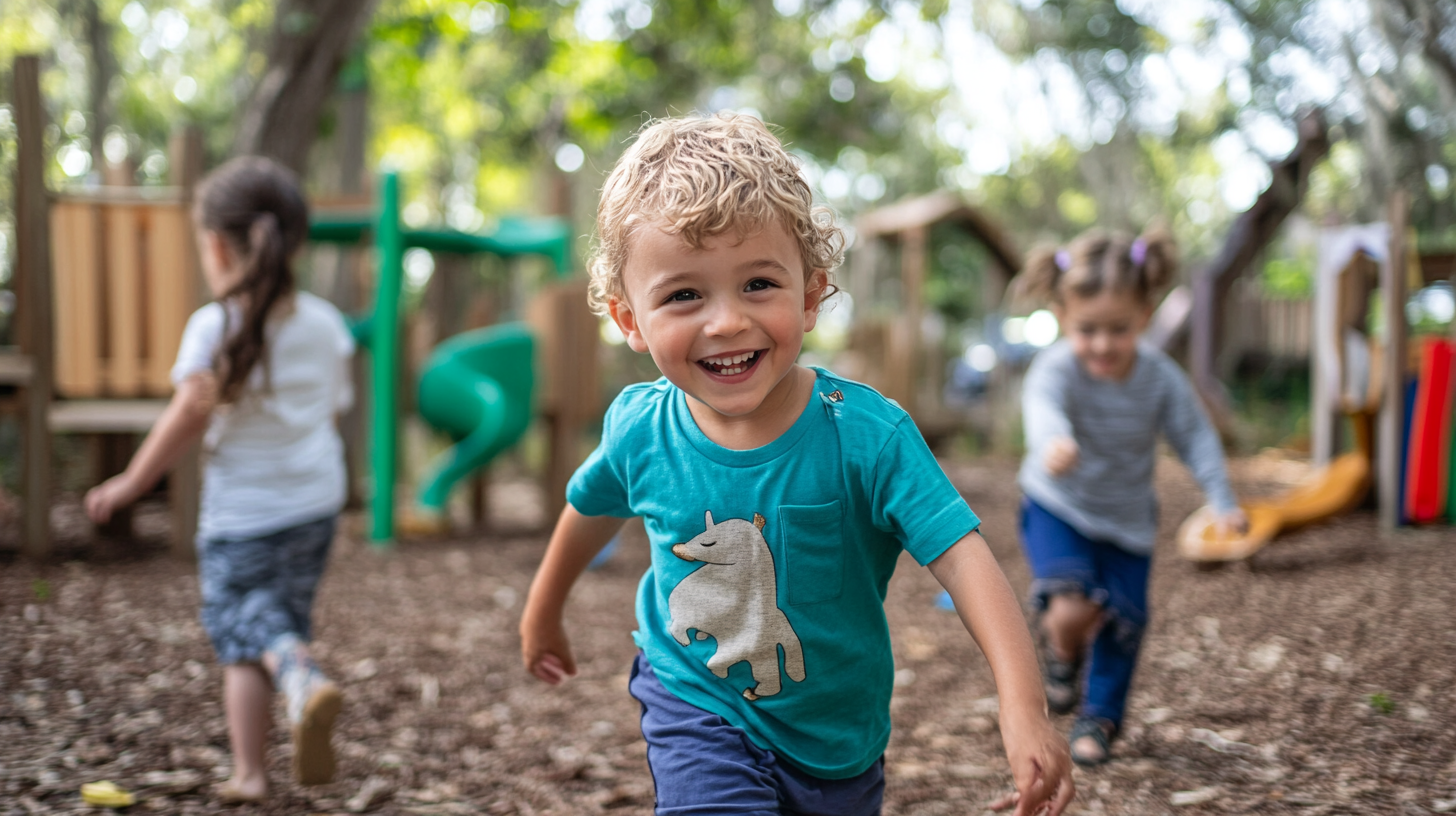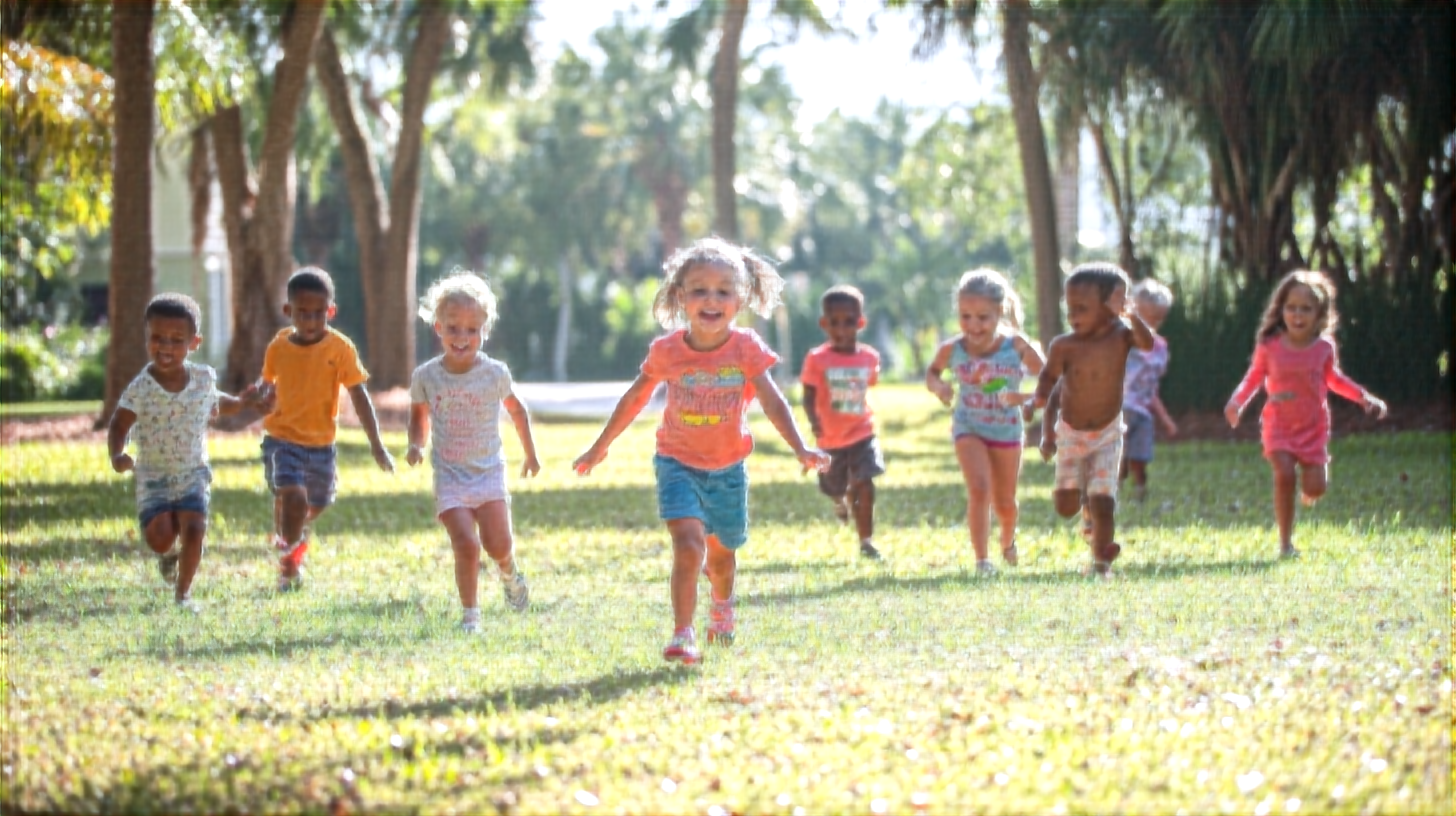In recent years, there has been a growing recognition of the importance of outdoor play in early childhood education. Outdoor play in Pre-K education offers numerous benefits that contribute to the overall development of young children. By integrating nature play and outdoor education into the curriculum, educators can foster physical, cognitive, social, and emotional growth. This article will explore the various benefits of outdoor play in Pre-K education and explain why it is an essential component of early childhood development.
Physical Development
Enhances Gross Motor Skills
Outdoor play provides children with ample opportunities to develop their gross motor skills. Activities such as running, jumping, climbing, and balancing help strengthen muscles and improve coordination. These physical activities are crucial for young children as they lay the foundation for more complex motor skills needed later in life.
Promotes Healthy Lifestyles
Engaging in outdoor play helps instill healthy habits from a young age. Children who participate in regular physical activity are more likely to maintain a healthy weight and develop a positive attitude towards exercise. Outdoor play encourages children to be active, reducing the risk of obesity and related health issues.

Cognitive Development
Stimulates Creativity and Imagination
Nature play allows children to explore and interact with their environment, stimulating creativity and imagination. Outdoor settings provide a diverse range of stimuli that can inspire imaginative play and problem-solving. Whether building a fort from sticks or pretending to be explorers in a forest, children learn to think creatively and develop their problem-solving skills.
Enhances Learning Experiences
Outdoor education offers unique learning experiences that cannot be replicated in a traditional classroom setting. Nature provides a rich, dynamic environment where children can engage in hands-on learning. For example, observing insects, planting seeds, or exploring different textures and materials can enhance their understanding of the world around them. These experiences foster curiosity, critical thinking, and a love for learning.
Social Development
Encourages Cooperation and Teamwork
Outdoor play often involves group activities that require cooperation and teamwork. Children learn to communicate, negotiate, and collaborate with their peers while engaging in outdoor play. These interactions help develop important social skills, such as sharing, taking turns, and resolving conflicts. By working together, children build strong relationships and learn the value of teamwork.
Promotes Emotional Well-Being
Spending time outdoors has a positive impact on children’s emotional well-being. Nature has a calming effect, reducing stress and anxiety. Outdoor play allows children to release pent-up energy and emotions, promoting a sense of freedom and happiness. Additionally, exposure to natural environments has been shown to improve mood and increase overall mental health.
Environmental Awareness
Develops a Connection with Nature
Outdoor play fosters a deep connection with nature, encouraging children to appreciate and respect the environment. By spending time outdoors, children develop an understanding of the natural world and their place within it. They learn about plants, animals, and ecosystems, fostering a sense of environmental stewardship from an early age.
Encourages Sustainable Practices
When children engage in outdoor play, they become more aware of their impact on the environment. They learn about the importance of recycling, conserving resources, and taking care of nature. These early lessons in sustainability can shape their attitudes and behaviors towards the environment, promoting a lifelong commitment to eco-friendly practices.

Implementing Outdoor Play in Pre-K Education
Creating Outdoor Learning Spaces
To maximize the benefits of outdoor play, it is essential to create dedicated outdoor learning spaces. These spaces should be safe, stimulating, and accessible to all children. Schools and early childhood centers can design outdoor classrooms, nature trails, and gardens that provide diverse learning opportunities. By integrating outdoor play areas into the curriculum, educators can create a seamless transition between indoor and outdoor learning.
Incorporating Nature-Based Curriculum
Incorporating a nature-based curriculum can enhance the effectiveness of outdoor play in Pre-K education. Educators can design activities and lessons that align with the natural environment, such as nature walks, gardening, and outdoor art projects. By integrating nature into various subjects, children can develop a deeper understanding and appreciation for the world around them.
Overcoming Challenges
Addressing Safety Concerns
Safety is a common concern when it comes to outdoor play. Educators and caregivers must ensure that outdoor play areas are properly maintained and free from hazards. Regular inspections, appropriate supervision, and clear guidelines for safe play can help mitigate risks and create a safe environment for children to explore and learn.
Weather Considerations
Weather can be a challenge when implementing outdoor play. However, with proper planning and preparation, outdoor play can be enjoyed in various weather conditions. Providing appropriate clothing and shelter, such as raincoats, hats, and shaded areas, allows children to engage in outdoor activities year-round. Embracing different weather conditions can also teach children resilience and adaptability.
Conclusion
Outdoor play in Pre-K education offers a multitude of benefits that contribute to the holistic development of young children. From enhancing physical and cognitive skills to promoting social and emotional well-being, outdoor play is an essential component of early childhood education. By creating outdoor learning spaces and incorporating nature-based curriculum, educators can provide children with enriching experiences that foster a lifelong love for learning and a deep connection with the natural world. Embracing outdoor play in Pre-K education is not only beneficial but also necessary for the overall growth and development of young children.
Call to Action: Enroll at Open Doors Preschool
If you are interested in providing your child with a nurturing environment that promotes outdoor play and holistic development, consider enrolling them at Open Doors Preschool in Cape Coral. Our dedicated team is committed to fostering creativity, curiosity, and a love for learning through immersive outdoor experiences. Contact us today to learn more about our Pre-K programs and how we can support your child’s growth in an engaging and enriching setting. Let’s work together to give your child the best start in their educational journey!

